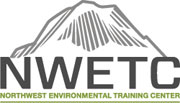Description: **If this course has Remote Live Attendance -- USA as the location, it is a live stream remote course. You will need a computer and an internet connection. **If this course has a city and state as the location, we will be attempting to hold the course in-person at the listed location with course times listed in the host city's time zone; however, due to gathering restrictions and health concerns, NWETC reserves the right to convert this course to a live remote streaming course. If you would like more information or have any questions, please contact us via email or phone 425 270 3274. Because new NEPA regulations were published in July 2020 and became effective in September 2020, there are new and more “difficult” questions about understanding and transitioning to these new regulations. The new changes are covered in detail. NEPA is often criticized for costing too much, taking too long, and accomplishing too little. If you have any role in the NEPA process, you have a stake in the answers discussed in this seminar. You’ve been to training on the basics, the fundamentals, the essentials, the step-by-step. You’ve been to refreshers and updates. It’s time to take the National Environmental Policy Act to the next level – Advanced NEPA. You are encouraged to bring your own questions for discussion and resolution. This is a seminar format with significant time reserved for discussion rather than lecture. Handout materials are substantial and based on statutes, regulations, and case law rather than on opinion or past practice. Expect a fast-paced day. During this seminar the questions that do not arise in the basic courses will be asked and answered – questions related to the categorical exclusion, the environmental assessment, the finding of no significant impact, and the environmental impact statement. ** This course is designed to be attended AFTER our 2-day presentation of "NEPA: the law, logic, and language of the National Environmental Policy Act ". We recommend registering for that course prior to registering for this seminar. When registering for both courses together, there is a $50 discount. ** "Owen does a great job explaining complex materials in an easily understandable way" Anonymous, August 2015 "[There was] Enthusiastic discussion between instructor and participants…real examples to compare/discuss/review." B. Campbell, March 2013 "I liked the enthusiasm and extensive knowledge that applied to a wide range of projects." K. Becker, October 2013 |
Intended Audience: Since this is an advanced course, it will be assumed that attendees will know the vocabulary, the acronyms, and the basic NEPA process. Attendees should be at least vaguely familiar with the statute, the regulations, and the guidance memoranda. Attendees should have substantial experience in the preparation of NEPA documents, their approval, or litigation over their adequacy. Project managers, senior environmental professionals, seasoned NEPA practitioners, writers and editors, legal counsel, and decision makers themselves will get the most out of this seminar.
Continuing Education Units: 0.80 CEUs
Course Topics
Types of questions that will be asked and answered: - What is an extraordinary circumstance that would take an action normally excluded out of consideration for categorical exclusion?
- Is a no-action alternative absolutely necessary in an environmental assessment?
- What is an environmental baseline?
- What is an appropriate alternative for a proposal involving unresolved conflicts over alternative uses of available resources?
- What is an adverse environmental effect that cannot be avoided?
- When is an issue or matter relevant and when is it not?
- What is the threshold for supplementing an EA?
- Can a programmatic EIS on a long-term plan of actions be supplemented with dozens, scores, or even hundreds of EAs/FONSIs on the many actions that implement the plan of actions over time? If the plan of actions has significant consequences, at what point does the accumulation of implementing actions become significant?
About the Instructor
 Owen L. Schmidt, BA, MA, JD, has more than 32 years of service with the Federal Government. He has served as Senior Counsel with the U.S. Department of Agriculture, Office of the General Counsel in Portland, Oregon, where he advised the Forest Service, Natural Resources Conservation Service, and other USDA agencies in Washington and Oregon. He was also a Special Assistant United States Attorney in the District of Oregon. Before joining USDA in 1991, he was an attorney for the Bonneville Power Administration, where he joined the legal staff after several years as an Environmental Specialist. Mr. Schmidt received his J.D. from Northwestern School of Law of Lewis & Clark College (1977), and a B.A. (1969) and M.A. (1973) in biology from St. Cloud State University, Minnesota. Mr. Schmidt is a frequent author and lecturer on the National Environmental Policy Act. He served as a Vice-Chair of the American Bar Association’s Book Publication Committee for the Section of Environment, Energy, and Resources and as a Vice President for the Ninth Circuit, The Federal Bar Association. He was the Editor of Oregon Birds, a quarterly journal of Oregon Field Ornithologists, for 14 years (1985-99), and is a long-time member of the Oregon Bird Records Committee.
What to Bring
Pen or pencil, and paper to take notes if you don't want to write in the manual. In person courses will have drinks and snacks provided as current health recommendations allow. Lunch will be on your own.
Billing Information
In order to guarantee a space in a course, the tuition must be paid in full TWO WEEKS before the first day of the course by either check or credit card. State and government agencies paying with a purchase order are allowed payment under the two-week time frame if a copy of the purchase order is received by NWETC.
If You Need to Cancel
Cancellations*-
With 31 or more days notice, we will offer a 100% refund or credit towards a future course. The credit is good for one year and may be applied to any course.
- With 30-8 days notice, we will offer a course credit towards a future course. The credit is good for one year and may be applied to any course.
- With fewer than 8 days notice, there is no course credit available
*Please note that attendee replacement is welcome at any time
Disability Accommodations
Disability Accommodations:To request disability accommodations, please contact us at info@nwetc.org or 425-270-3274 at least 30 days prior to the event.
|










